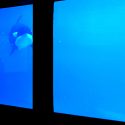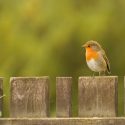February 2023: new figures on animal testing. Yet more animals and more suffering
February 2023: new figures on animal testing. Yet more animals and more suffering
15.02.2023
France
February 2023: new figures on animal testing. Yet more animals and more suffering
Animal testing
Each year, the figures on animal testing take time to be made public. On 14 February 2023, the data from 2021 has just been published by the Ministry of Research and will soon be available to consult through interactive graphs on One Voice’s specialist website. It is no big surprise that the number of animals being used is not going down while experiments involve more and more suffering.
Still this year, the statistical survey has arrived more than one year after the end of the year concerned. This kind of delay would be easily excused if it were not so frequent: from the lack of updates from the laboratories’ inspection vade mecum by the Ministry of Agriculture despite our requests and the lack of follow-up for serious and repeated problems, we are entitled to wonder if all of this is taken seriously.
A number of animals that does not get smaller
Since the middle of the 2000s, figures on animal testing were at almost 2 million uses per year*, scandalously high time and time again. After a misleading decline in 2020 due to lockdowns, it went back to the usual number in 2021: 1.9 million over the year.
Research goals have not changed: 90% of them are divided between fundamental or applied research, regulatory toxicity tests and the production of blood, antibodies, and other bodily substances.
Yet more suffering
Worse: animals’ pain does not stop intensifying. Experiments classed as ‘light’ have been reducing since 2015, while ‘moderate’ experiments are more and more abundant**. This is particularly true for rabbits, for which the total number and those suffering are surpassed every year.
And with 14% of experiments stated as ‘severe’, France is still the leader in this domain that involves significant and lasting anxiety and/or pain. This concerns zebrafish in particular, the number of which has multiplied by six since 2015, and of which a quarter of uses in 2021 were procedures of this magnitude.
Cats, dogs, primates still…
As in previous years, more than 1000 uses of cats, 4000 uses of dogs, and more than 3500 of primates were listed in 2021. The only element that gives vague hope: the number of dogs selectively bred as myopathy patients decreased further in 2021 to fifteen individuals.
When it comes to primates, almost all of them are long-tailed macaques, representatives of an endangered species for whom we are also fighting for on an international level. More than 600 are ‘F1’ macaques, which means that their parents had been captured in the wild…
When will we see the 2022 figures?
ALURES [Animal Use Reporting – EU System] revealed that the use of more than 4 million animals was authorised in 2022 in France – more than double compared with previous years! Even if this can likely be explained by the fact that laboratories largely overestimate the number of animals used in their projects to avoid administrative issues, this above all suggests a total lack of any desire to reduce the number of animals used.
Another worrying point: among these authorisations granted in 2022, six animals in ten will have to endure ‘moderate’ experiments and close to two in ten will have to endure ‘severe’ procedures. This amount is still higher than in 2021.
What is a ‘moderate’ experiment? It is, for example, a case of implanting electrodes in macaques’ skulls before making them stay for several hours per day for months in restraint chairs to measure what is happening in their brains. And severe? This can be infecting pigs with viruses that can give them serious pulmonary diseases to produce vaccines with the aim of maintaining farm profitability in the face of swine flu and other ailments that cause economical losses.
We are asking at the minimum for the authorities as an example to comply with the laws in force – particularly for true transparency on what happens in laboratories in our country – and an elaboration of a genuine exit plan for animal testing in France and Europe, alongside genuine funding for the development of non-animal research methods. Respecting the European directive is urgent.
The figures on animal testing in France
*Some animals are counted several times if they are reused in different projects during the same year. But with the general rate of reuse being very low, the number of animals used is not far from the number of uses listed.
**Regulations classify animal suffering in four categories: ‘non-recovery’ (experiments entirely under anaesthetic that end in the animal being put down), ‘mild, ‘moderate’, and ‘severe’. Examples of each category are available on our dedicated website.
Translated from the French by Joely Justice









